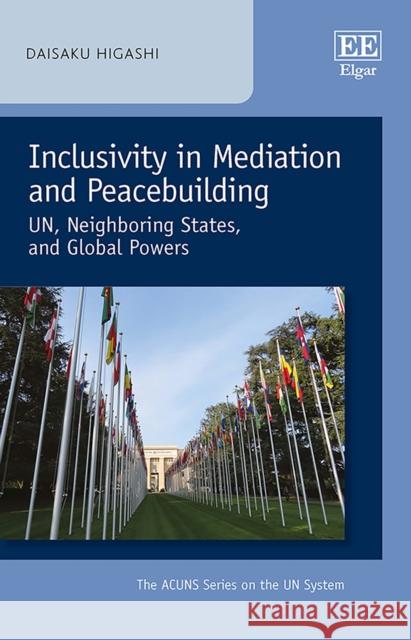Inclusivity in Mediation and Peacebuilding: UN, Neighboring States, and Global Powers » książka
Inclusivity in Mediation and Peacebuilding: UN, Neighboring States, and Global Powers
ISBN-13: 9781800880511 / Angielski / Twarda / 2022 / 192 str.
This cutting-edge book illuminates the key characteristics of inclusivity in mediation during armed conflicts and post-conflict peacebuilding. Daisaku Higashi illustrates the importance of mediators taking flexible approaches to inclusivity in arbitration during armed conflicts, highlighting the crucial balance between the need to select conflicting parties to make an agreement feasible and the need to include a multiplicity of parties to make the peace sustainable. Higashi also emphasizes the importance of inclusive processes in the phase of post-conflict peacebuilding. Higashi draws on first-hand experience as a team leader for reconciliation and reintegration in UNAMA, as well as interviews with leaders in conflicting states and UN missions, and recommends various roles for the UN, neighboring states and global powers in mediation during and after armed conflicts. Utilizing extensive field research and analysis, the book focuses on conflict regions in Afghanistan, South Sudan, Syria, Yemen, Iraq and East Timor to demonstrate the significance of addressing inclusivity in mediation and peacebuilding with different approaches. Engaging with a range of empirical sources to make key policy recommendations, this book is crucial reading for practitioners working in mediation and peacebuilding, particularly UN officials, think-tank experts, government officials and NGOs. It will also benefit scholars and students of political science and international relations in need of unique, real-world accounts of global mediation, peacebuilding and conflict management.











